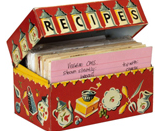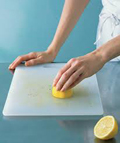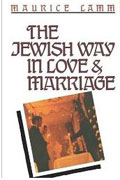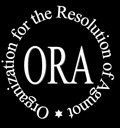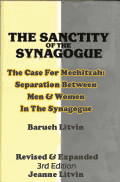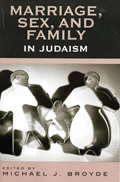Q & A HALACHA

Every Day Family Questions & Answers
♦♦♦♦♦
PAGE 2B - FAMILY
♦♦♦♦♦
I have an expensive bottle of wine that was left open & unattended overnight.
According to Shulchan Aruch, it may not be used for Kiddush.
Is there any way to fix the wine to make it useable again?
- The Shevet Halevi (6:111) writes that in this situation, one may dilute this wine with
other wine that had not been left uncovered at a ratio of one to two, particularly to
to avoid financial loss. - Although one is not permitted to intentionally nullify forbidden foods (bitul issur lechatchila),
in this instance it is acceptable since uncovered wine is not viewed as issur. - Uncovered wine is unsuitable for a person of nobility, but that is not the case when the
majority is in an uncompromised state.
♦♦♦♦♦
Can I enter a bathroom with food in my pocket?
- The Tzitz Eliezer (14:2) writes that there is no source that negative spirits (Ru’ach Ra’ah) affects food that was brought into a bathroom.
- In addition, he proves this is the case from the Be’er Heitev (OC 3:2) who writes that
one may not eat in a bathroom, but does not mention any restriction about bringing food
into the bathroom. - He also cites Rav Yosef Chaim Sonnenfeld who likewise ruled that there is no prohibition against bringing food into a bathroom.
- Nonetheless, it is improper to bring food to a place that is unclean.
- If the food is stored safely in one’s pocket, or is wrapped up or sealed, this concern would
be obviated as well.
♦♦♦♦♦
I had food in my pocket when I visited a cemetery.
Can this food still be eaten or is it a concern of a bad spirit (Ru’ach Ra’ah?)
- Shulchan Aruch (YD 368:1) writes that one must act with a level of seriousness when one visits a cemetery so as to show proper honor for the deceased.
- The Rama adds that one may not eat or drink inside of a cemetery as this would be disrespectful.
- Yalkut Yosef (OC 4:39) infers from the ruling of the Rama that there is no concern of
Ru’ach Ra’ah in bringing food into a cemetery. - The Rama was not concerned with food brought into a cemetery, only noting that it is
improper to eat it there. - However, Ru’ach Ra’ach (a damaging spirit) does rest on the hands of one who enters a cemetery & one must wash their hands upon exiting a cemetery
- Therefore, after leaving a cemetery one must be careful not to touch the food until after washing hands.
♦♦♦♦♦
I have a pot that I realized was never toveled.
The bottom of the pot is all black.
Can I tovel the pot as is
or do I need to first clean the pot, down to the bare metal?
- The rule of Tevilas Keilim is that water must be able to touch every section of the utensil.
- Ordinarily, if a small area of the utensil is covered & will not be exposed to the water, the
Tevilah is invalid. - However, if the majority of the pot will come into contact with the water, & the minority is
blocked by something that most people would not object to being there, & the owner
also does not object, then it may be toveled as is. - Therefore, the Rama (YD 202:2) writes that black soot that is stuck to the bottom of a pot
need not be removed before Tevilah, since most people do not care if the bottom of a pot
turns black. - The Taz (YD 202:3) points out that if there is black soot inside the pot, most people would
be bothered by its presence.
♦♦♦♦♦
I bought a set of pots from a store that has an excellent return policy.
Do I need to be concerned that someone used & pots & returned them?
- The Aruch Hashulchan (YD 122:22) writes that in general, when purchasing utensils
from a store, one need not be concerned that the proprietor cooked in the pots
that he is selling. - A store owner is a professional & would not want to sully his reputation by representing
used merchandise as new. - This rationale would not apply in our case, since we know that the department stores
take back used merchandise so long as it still looks new. - However, there is another reason to be lenient. The Rama (YD 122:11) writes that if a
nochri is selling many utensils, claiming that they are brand new, one is permitted
to purchase these utensils and is not required to kasher them. - Even if some of the utensils were used, we may assume that most of them are brand new
& one may follow the majority (holchim achar harov) & use the pots without kashering.
♦♦♦♦♦
I found an old set of pots in my parent’s basement.
They have not been used in many years.
No one remembers if they were milchig or fleishig.
I would like to use them for milchig.
May they be kashered & used for milchig?
- Rabbi Akiva Eiger (Commentary on Nidah 27a) writes the pots may be designated for
meat or dairy without kashering since the pots have not been used in more than 24 hours. - After 24 hours any taste that was absorbed in the pot becomes foul & on a Torah level
the pot can be used for meat or dairy without kashering.
- Nevertheless, there remains a Rabbinic obligation to kasher pots even after 24 hours
have elapsed. - However, in this case, we may apply the principal of 'safek d’rabbanan l’kula' (in cases of
doubt that pertain to a Rabbinic prohibition one may be lenient). - Additionally,Igros Moshe (Y.D. II:46) writes that if a utensil is not used for more than a
year, there is an opinion that holds that it does not need kashering. - Although we don’t allow this opinion, it can act as an additional mitigating factor.
- However, since one can avoid the doubt by kashering the pot, it is proper to do so.
- Although the Magen Avrohom (OC 509:11) writes that the custom is not to permit
kashering a fleishig pot to use it for milchig, in this case kashering is acceptable
since it is only a extra stringency (chumra)
♦♦♦♦♦
I bought a set of used metal pots from a non-Jew.
Do I kasher them first or do I tovel them first?
- Shulchan Aruch (YD 121:2) writes that one should first kasher the pot & afterwards
immerse it in a mikvah. - If one toveled the pot first before kashering, it is a matter of dispute among Rishonim
whether the tevila was effective. - The Rashbam (cited in Beis Yosef YD 121) writes that toveling a pot before
kosherizations like immersing in a mikvah while holding a unclean item (sheretz)
& the tevila is ineffective. - However, other Rishonim disagree & maintain that tevila is a separate mitzvah & is
not connected with kashering. - The Shach (YD 121:5) writes that if one was to tovel a pot before kashering, tevila
should be repeated without a bracha because of the uncertainty.
- Nonetheless, the Dagul Merivava writes if the pot had not been used in the past 24
hours, one may tovel before kashering.
1. After 24 hours, the non-kosher taste that had been absorbed in the pot is ruined.
2. At that point the absorbed taste is no longer similar to a sheretz.
♦♦♦♦♦
Every Day Family Questions & Answers
Page 1 - Family | Page 1B - Family | Page 2 - Family | Page 2C - Family
Page
2D - Family - Cats & Dogs | Page 3 - Family - Kosher
Page 3B - Family - Kosher
Page 4B - Family - Kosher | Family 4 - Medical
Page 5 - Dire Circumstances | Page 6 Dire Circumstances
♦♦♦♦♦
Q & A Shabbas 1 | Q & A Shabbas 2 | Q & A Shabbas 3
Q & A Davening | Q & A Business 1 | Q & A Business 2
♦♦♦♦♦
How To Choose A Rabbi | Shiva Call Etiquette
Mikvah | Taharas HaMishpacha
♦♦♦♦♦
Copyright © 2012 -2018 KosherWoman.com
All rights reserved


